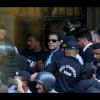Pakistan bats for Imran Khan

Contrary to media reports leading up to the polls, Pakistan's powerful military and its political allies encountered an unexpected outcome in the recently concluded election: a resounding surge of support for the imprisoned former Prime Minister Imran Khan and an equally categorical rejection of the establishment.
Khan's clout originates from a general belief that he can do no wrong while representing Pakistan, a country where politicians are viewed as either spineless opportunists or casualties of military coercion. Today, his ability to both captivate and galvanise a young electorate—exhausted by the army's dominance and tired of the legacy of corrupt dynastic parties—has positioned Khan as a messianic saviour. Pakistan is facing a broken political system, a devastating economic landscape, and a future riddled with despair—all while being geographically positioned in a location where global superpowers remain invested.
Imran Khan established the PTI party in 1996, and incrementally rode a wave of growing popularity to become Pakistan's most powerful political actor. In 2018, he formed a government that was heralded as a symbolic manifestation of the kind of people's government Pakistanis had desired for decades. His government did not complete its full tenure. Indeed, this was quite predictable. No Pakistani prime minister has ever completed a full term in office in the country's 76-year history. Pakistan's military—with Washington's patronage—has a consistent track record of ousting elected governments in Islamabad.
how Pakistanis voted in the recent election represented a rare but powerful rebuke of the army's long-standing manipulation of elections. Voters showed disdain for the increasingly overt attempts to undermine Khan's party and prevent his return to office. These events offer lessons for the West, especially regarding how people in Pakistan perceive alleged Western foreign interference, which directly contributes to perpetuating a cycle where neither democracy is allowed to flourish nor the economy is permitted to escape being held hostage by a group of self-serving elites.
In 2022, a military-backed, backroom-engineered, no-confidence motion ejected Khan from power. He has been in prison since August last year amid criticism of judicial oppression directed at him and his supporters. Criminal convictions prevented Khan from contesting in the recent election. The speed at which sentences were handed down, the existence of over 200 legal cases against him, and a slew of indictments against his wife and other family members are part and parcel of how Pakistan's generals co-opt the legal system to draw curtains on political careers. If history is to be trusted, these cases appear to be politically motivated.
Khan, however, has turned the table on the military. In fact, his detention has boosted his popularity. Despite a months-long crackdown that hindered electoral campaigning and saw the PTI barred from contesting as a party—forcing Khan's candidates to run as independents—the PTI made a remarkable showing in the recent election. This feat can only be described as a triumph. Khan's team secured 101 of 265 seats, significantly more than the seat share of other parties that are still being favoured by the military to be sworn into office.
The PTI has complained about vote-rigging, claiming it was deprived of around 70 additional seats—a number that would have granted them an absolute majority to easily form a government. Khan's opponents, the army-backed parties PML-N and PPP took 71 seats and 53 seats, respectively—with minor parties taking the remainder and 15 of the elected 266-seat national assembly seats yet to be announced. The election process was plagued by unexplained delays, a telecommunications blackout, and various other alleged irregularities.
Leading up to the polls, the PTI revolutionised campaigning through social media rallies and artificial intelligence. Facing regulations that barred television channels from mentioning Khan or broadcasting his clips—along with a ban on in-person rallies—the PTI adapted by taking its campaigning online. They hosted rallies on YouTube and TikTok, circumventing state-sponsored attempts to block internet access. This strategy played an important role in winning the youth vote for PTI-affiliated independent candidates.
The PTI's media team utilised AI to repurpose an old clip of Khan, a tactic analysts have hailed as a masterstroke in political communication. AI-generated speeches of Khan—employed before the polls—were not just innovative; they inspired Pakistan's youth to weaponise the vote as a tool to push back against the status quo. Equally, his post-election speech from prison has been a clarion call, urging supporters to stay on the streets to ensure that his candidates are allowed to form a government.
The bottom line is that how Pakistanis voted in the recent election represented a rare but powerful rebuke of the army's long-standing manipulation of elections. Voters showed disdain for the increasingly overt attempts to undermine Khan's party and prevent his return to office. These events offer lessons for the West, especially regarding how people in Pakistan perceive alleged Western foreign interference, which directly contributes to perpetuating a cycle where neither democracy is allowed to flourish nor the economy is permitted to escape being held hostage by a group of self-serving elites. The Pakistani media cautiously refers to this group as "the establishment," avoiding direct mention of the army due to fears of persecution.
The most recent case of such interference can be traced back to the no-confidence motion against Imran Khan. Controversies surrounding the contents of a diplomatic cipher—a secret cable—alleging efforts by the Biden administration to oust Khan from office are widely believed to be true in Pakistan. Khan attributed his April 2022 dismissal from office to this cipher, suggesting it was part of a coordinated effort by the United States, his political opponents, and the Pakistani military to remove him from power.
The Intercept detailed a conversation between Pakistan's former ambassador to the US and Donald Lu, assistant secretary of state for the Bureau of South and Central Asian Affairs. This exchange hinted that Washington would overlook and forgive Khan's pro-Russian actions following a successful no-confidence vote, spurred by concerns about his visit to Moscow at the start of the Russia-Ukraine war. Conversely, a failure to remove Khan could result in backlash from Washington. A month after this discussion was reportedly documented and shared, a no-confidence vote in parliament led to Khan's ousting.
A narrative has emerged: the Biden administration advised the army to ensure that Khan is toppled by them in cahoots with his rivals via a constitutionally acceptable process. This is viewed as a mere episode in a broader tale of a series of coups since the Cold War era, endorsed by the US. The unintended outcome is that Pakistani youth have become even more supportive of Khan and critical of Western influence over the military in deposing elected governments. Washington has denied these allegations. While not a new storyline, Pakistanis now vocally reject this form of West-backed political manoeuvring.
Taking a step back to search for credible proof on whether the US formally engaged in a full-blown conspiracy to remove Khan from power may yield no legitimate findings. Evidence for such a conspiracy is minimal. However, the West is surely to blame for creating an image of itself as a dominator rather than a democratic partner to the Pakistani people. The recent election has certainly served as a critique of the West.
Under Imran Khan's leadership, Pakistan chose non-alignment in response to Washington's calls to condemn Vladimir Putin, motivated by a desire to maintain strategic ambivalence in the Russia-Ukraine war. This approach, aimed at securing assistance—via bilateral deals with Russia—was essential for meeting Pakistan's energy and food security needs. This stance also enjoys support among many Pakistanis. Perhaps it is logical for them to believe that strategic neutrality should form the core of Pakistan's foreign policy. Pakistanis believe that the West, led by the US, has either caused turmoil in the region or aided and abetted it—particularly in neighbouring Afghanistan—while using Pakistan as its ragdoll in the war on terror.
A surge in youth participation in the recent election—representing 44 percent of voters—is a turning point in Pakistani politics. Women turned out in large numbers, overcoming barriers to make their voices heard. The overall turnout—expected to surpass the usual 45 to 50 percent—is a win in itself for democracy. Particularly pioneering has been the use of social media to counteract the constraints imposed by censorship. For the US, relying on Pakistan's military as a stabilising force is untenable in a society eager for change.
Pakistan's military was unlikely to ever allow Khan-backed independent candidates to form a government. Even if permitted, such a government would likely be held captive to the whims of individuals who might choose or be forced to desert a seemingly wobbly coalition. More likely, as things began to shape up, Khan's rivals, led by two political dynasties, were slated to band together in a coalition, thus keeping Khan imprisoned and the PTI away from power. Nawaz Sharif and Bilawal Bhutto appear to have reached a power-sharing agreement—with Sharif's younger brother Shehbaz being touted as the prime minister-in-waiting. Pakistan's future is unclear, but it is obvious that Imran Khan will remain a part of that future, whether in prison, in the streets, or as an emblem of the kind of change Pakistanis aspire to achieve.
The US must face a harsh truth: its historic backing of military-led schemes to influence politics via clandestine back-channel deals is steering Pakistanis closer to China and Russia. It is no secret that the US has compromised Pakistan's democratic integrity by collaborating with its military for decades in the name of strategic motives and regional security. Pakistanis are fed up with being mere pawns and are throwing their support behind a leader who, despite his many imperfections, dares to challenge the West on equal terms rather than bowing subserviently like his predecessors.
Imran Khan is no saint. He has had his share of contentious dealings with Pakistan's military and the radical right. To expect countries like Pakistan to magically become Western-style liberal democracies is, in itself, utopian. But today, Pakistanis have defied pre-election expectations and fought for democracy on their own terms, doing so with no help from the West. So even if Khan is not enthusiastic to be a Western ally in the sense that Pakistan's military has committed to be, he still represents the democratic will of the Pakistani people. And therefore, with Imran Khan, the West must deal, if not tomorrow, then in the foreseeable future.
Mir Aftabuddin Ahmed is a public policy columnist and an Urban Fellow Researcher with the City of Toronto. He can be reached at [email protected].
Views expressed in this article are the author's own and do not reflect those of any organisation, institution or entity with which he is associated.
Follow The Daily Star Opinion on Facebook for the latest opinions, commentaries and analyses by experts and professionals. To contribute your article or letter to The Daily Star Opinion, see our guidelines for submission.

 For all latest news, follow The Daily Star's Google News channel.
For all latest news, follow The Daily Star's Google News channel. 












Comments